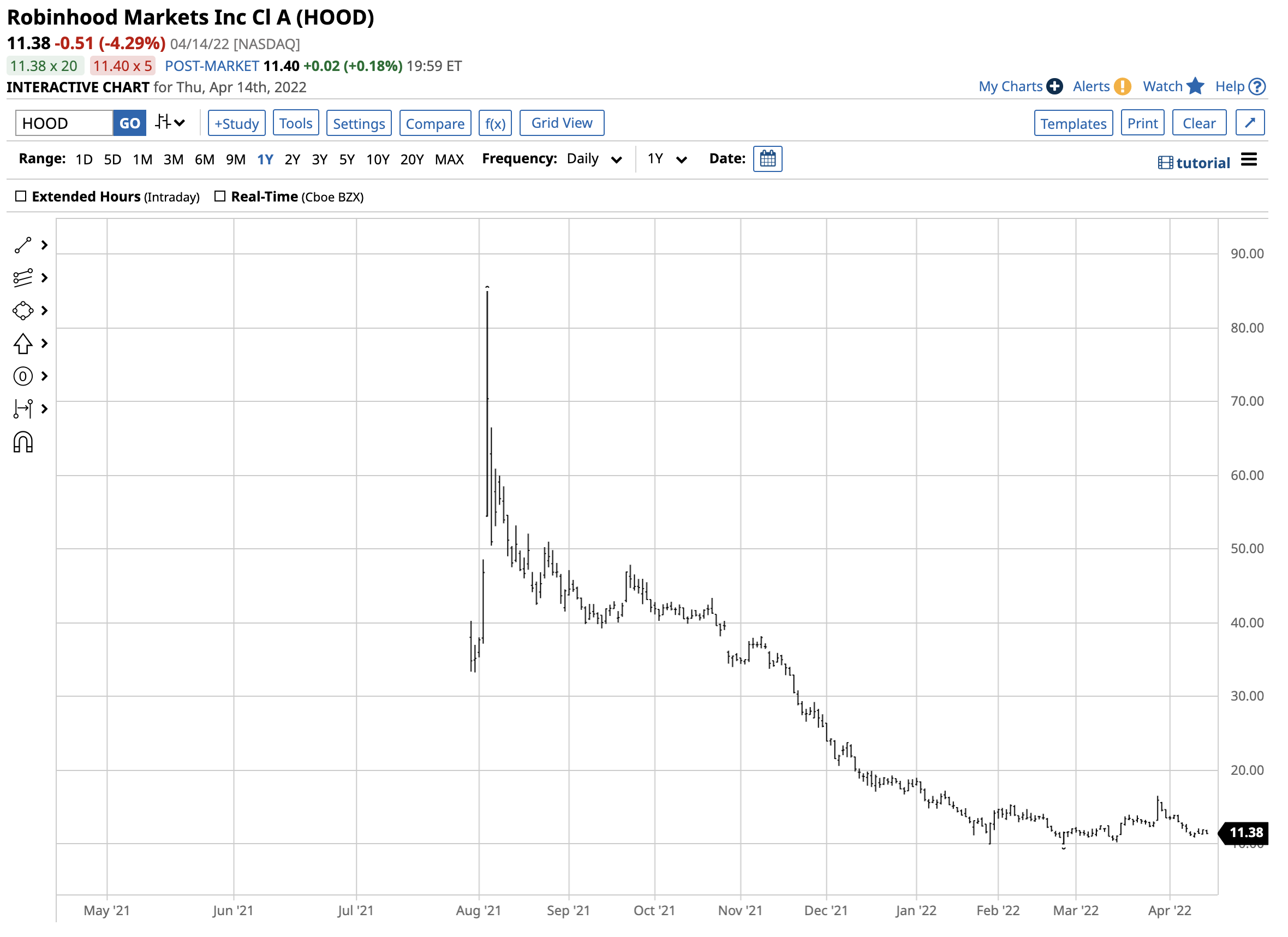This post was written exclusively for Investing.com
- Race to roll out a secure crypto wallet
- Block’s Jack Dorsey left Twitter to work on the project
- Robinhood: online discount brokerage company
- Robinhood’s crypto wallet goes live
- Goldman Sachs is dubious on the company
Since cryptocurrencies burst on the scene around a dozen years ago, custody—meaning how traders and investors can secure their digital assets from theft—has been an issue that has caused many market participants to avoid the asset class, even as the number of tokens available continues to increase.
Unfortunately, there's a history of crypto insecurity that dates back to the now-infamous collapse of the Mt. Gox Bitcoin exchange. During February 2014, the Japan-based exchange closed down after a hack led to the loss of 850,000 Bitcoins. That hack and the subsequent failure of the exchange provided a cautionary example that resonates to this day. And crypto custody and security remain an ongoing concern for the burgeoning marketplace even in 2022.
US regulators have allowed Bitcoin and Ethereum futures to trade on US exchanges under the auspices of the Commodity Futures Trading Commission (CFTC). To date, the US Securities and Exchange Commission (SEC), the country's stock market regulator, has only approved ETF and ETN products related to those futures. There are still no products trading in the US based on physical crypto tokens.
While other jurisdictions have allowed products based on physical cryptocurrencies, US regulators remain concerned about market manipulation, custody, and security issues. In a surprising development, last week, a US discount online brokerage firm, better known for offering commission-free trading for stocks, exchange-traded funds, and cryptocurrency rolled out a crypto wallet for its two million customers.
Race to roll out a secure crypto wallet
Cryptocurrency market participants currently have two options for how they hold their tokens. Many investors allow exchanges to store the assets, relying on the platforms' security procedures. The Mt. Gox debacle was an example of how allowing a third party to hold valuable assets can go terribly wrong when hackers find a way to evade security.
The second choice is to keep one's digital assets close, in computer wallets in the cloud. Owners who do this must safeguard and remember passwords, and there have been horror stories about lost password keys leading to massive fiscal losses.
At the same time, US regulators have cited custody issues as one of the reasons for hesitancy in approving ETF and ETN products for physical Bitcoin, Ethereum, and other cryptocurrencies. While they have approved the derivatives for futures products, physical exchange-traded products in the US remain in the pipeline, awaiting secure custody while other issues surrounding the asset class are also addressed. Over the past months, there has been a race to roll out a versatile and secure cryptocurrency wallet.
Block’s Jack Dorsey left Twitter to work on the project
Jack Dorsey, co-founder of social media platform Twitter (NYSE:TWTR) and founder of financial services and digital payments company Block (NYSE:SQ), believes that Bitcoin and cryptocurrencies will “change the world.” He sees them as the future.
In 2021, Dorsey departed Twitter to focus on his payments company. He changed the name from Square to Block, in order to better reflect his commitment to blockchain technology and the evolution of the cryptocurrency revolution.
The latest prototype of Jack Dorsey’s crypto wallet and custody solution looks like a rock. Block’s wallet will have a USB-C and a fingerprint reader to access stored cryptocurrencies. On Apr. 5, he tweeted a picture of the “rockey” wallet:
While SQ has made progress in developing a secure crypto wallet, its solution is still just a prototype.
Robinhood: online discount brokerage company
Robinhood (NASDAQ:HOOD), the online discount brokerage firm that offers commission-free investing and a trading platform used primarily by retail stock investors, just rolled out its crypto wallet, for eligible customers. The company makes money from transaction-based revenues, including payment for order flow.
Robinhood was at the center of the wild price action in such meme stocks as GameStop (NYSE:GME) and AMC Entertainment (NYSE:AMC) as well as others that experienced massive rallies and incredible price swings in early 2021 when a herd of traders rushed into stocks with enormous short interests.
Robinhood has been the platform of choice for younger investors and traders, who also happen to be the broadest addressable market for cryptocurrencies.
Robinhood’s crypto wallet goes live
On Apr. 7, Robinhood rolled out its crypto wallet, allowing customers to transfer cryptocurrencies into and out of their Robinhood Crypto accounts on a commission-free basis.
The crypto wallets require identity verifications through a photo of a government-issued ID and a live photo or selfie. The wallet has two-factor authentication and limits sending $5,000 worth of crypto and up to 10 transfers in a 24-hour period. As of April 14, Robinhood’s crypto wallet supported Bitcoin, Bitcoin Cash, Bitcoin SV, Dogecoin, Ethereum, Ethereum Classic, and Litecoin.
The wallet is available to “all eligible customers,” amounting to over two million people. However, customers in Hawaii, Nevada, and New York are not eligible because of local regulations.
Goldman Sachs is dubious on the company
Robinhood shares trade on the NASDAQ. The stock tanked after reaching a high of $85 on Aug. 4, 2021. It closed on Thursday at $11.38. 
Source: Barchart
The chart highlights the decline in HOOD shares which are now hovering not far above the most recent $9.93 low.
In April, Goldman Sachs analysts downgraded Robinhood to Sell from Neutral, stating that “softening retail engagement levels” and a limited path to near-term profitability probably would be drags on the stock’s performance into 2023. HOOD's crypto wallet could be a potential game-changer for the stock and the company.
Cryptocurrency custody is, after all, a significant factor for the burgeoning asset class. Robinhood’s crypto wallet and Block’s forthcoming rock wallet are steps along the road toward mainstream acceptability.
